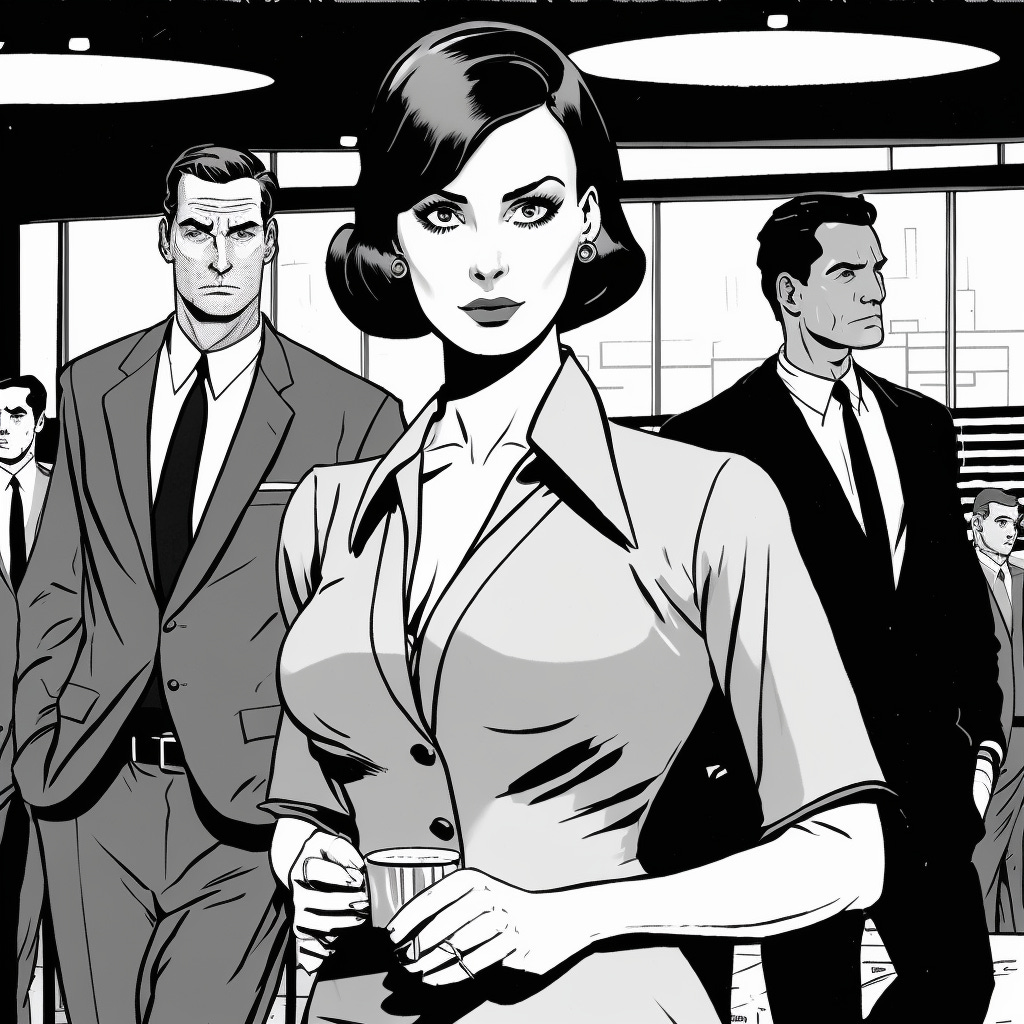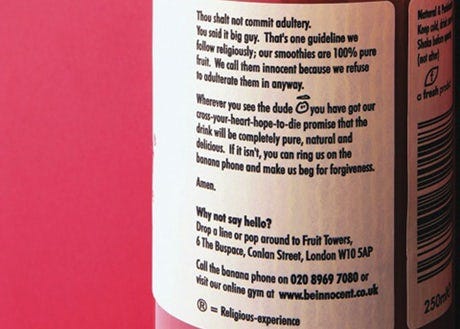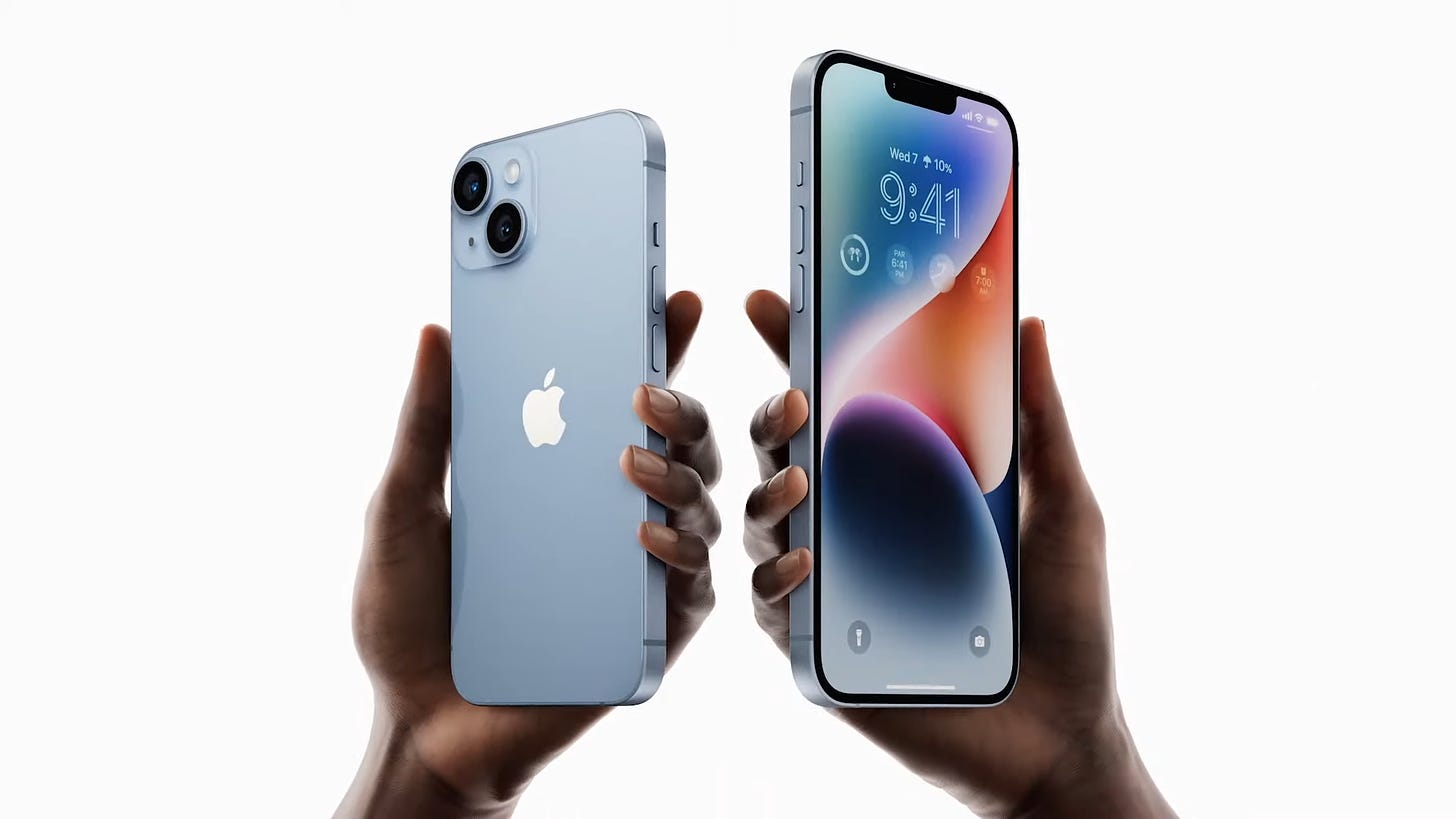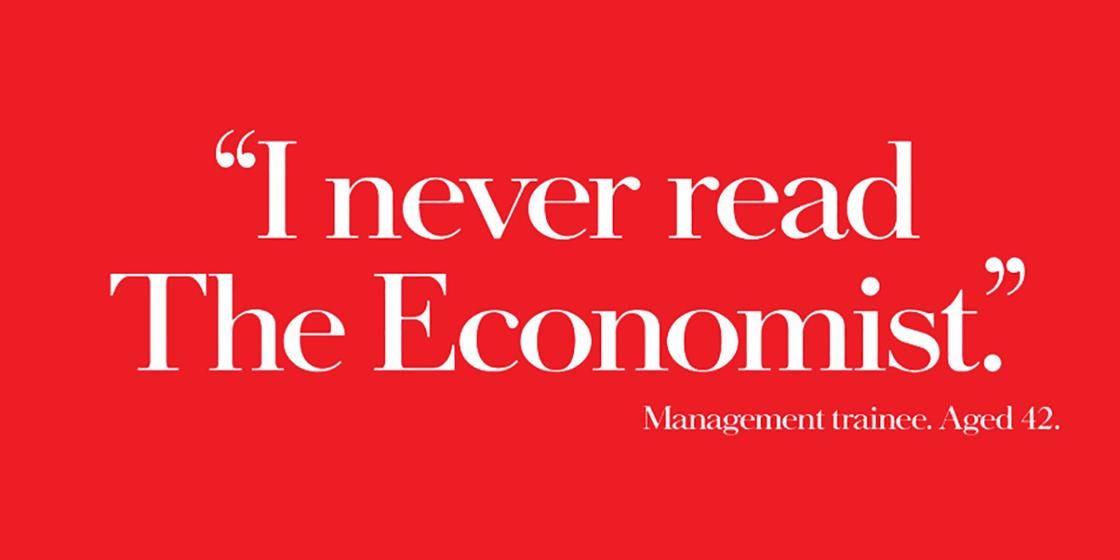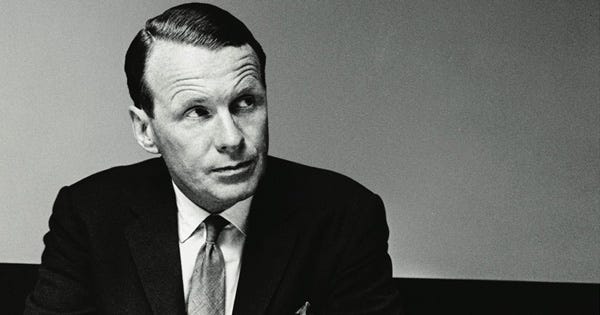It’s been a year since I stopped being a wannabe Vietnamese coffee business mogul and went all in on writing instead.
Not wanting to be a starving artist, I had to figure out a way to make money from writing. Fortunately, there’s a form of writing that converges all of my interests and skills together — copywriting.
Some of you may be wondering what a copywriter is and how it’s different to a normal writer. Well, everyone can write, but not everyone can write copy. On the surface, it all looks like writing, but the execution is very different.
Copywriters write the cheesy jingles on radio ads. The witty captions on towering billboards. The tear-jerking John Lewis TV commercials. Or the cheeky product descriptions you see on the back of an Innocent smoothie drink.
The words you see are a result of in-depth research and creativity. Copywriters spend hours obsessing over every word and sentence in order to tap into your emotions. Simply put, copywriting is the art and science of writing for marketing materials.
Copywriters have a tremendous influence on culture and society. From the moment you wake up and check your phone, we carpet-bomb your senses with advertising messaging and lull you into a desire to buy shit you probably don’t need. We help drive what’s trending. Or worse, we run political campaigns to influence uninformed citizens of the UK to vote for something they don’t understand and depart us from the European Union.
I’m well aware of the consumerism debate and the ethics of that. But I won’t discuss that today.
Instead, I’m here to talk to those who are interested in something 99.999% of the world hates… advertising (everyone hates advertising until they lose their cat). And how to become an Ad-man.
It sounds odd, but I read it out of enjoyment. I analyse it. I study it. And occasionally, I develop the brass balls to criticise campaigns from one of the biggest ad agencies.

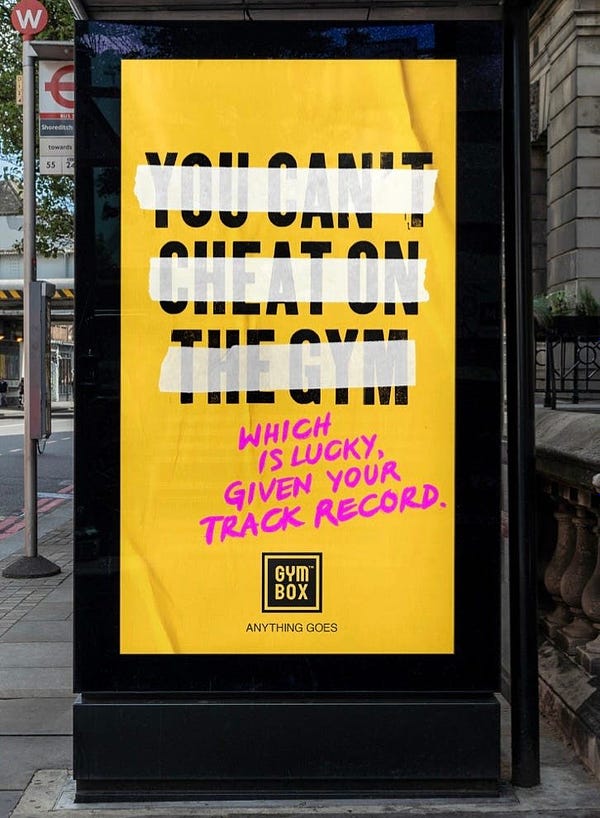
GymBox followed up and sent me the details behind the campaign. Rule of thumb: If you have to explain the concept to a customer, it’s shit.
I know it’s a peculiar thing to be fascinated by, but advertising lies at the intersection of business, creativity, psychology, and writing. It’s a good way to get paid and learn more about business. But, I’ll admit, I’m also a nosy person and want to find out what makes people truly tick.
“Consumers don’t think how they feel. They don’t say what they think and they don’t do what they say.”
— David Ogilvy
Last month I went to a talk hosted by Design&ArtDirection (D&AD) on What Writing Is Made Of. It was one of those events where we sat and sipped on free alcohol, listened to copywriting gurus, and awkwardly networked with one another. Most worked in agencies. So when I introduced myself and told them how I started a copywriting business with no portfolio, they looked at me as though I had told them I was the King of England (I omitted the part about landing paying clients. It’s always fun to gauge reactions).
I’ll admit I have no clue what I am doing. But that’s never going to stop me from trying. Perhaps it’s arrogant of me to think so, but I have the self-belief that I can figure things out. And although the last few months have felt like trying to break open a rock with my bare hands, my friend Harry reminded me how far I’ve come.
Somehow, I’ve managed to figure out – on top of improving my copywriting craft – how to do lead generation, sales, account management, research, email marketing, direct marketing, media buying, product descriptions and brand advertising. I’m almost an entire advertising agency rolled into one person.
So after a year as a copywriter, here are three principles I followed to become one man ad agency…
Be Curious
All of us start as naturally curious.
But when we enter adulthood, an invisible hand grabs our curiosity by the throat and throttles it to death. As a result, we stop creating. We stop exploring. And coast through life, wishing, waiting and wondering if life will get better.
The best copywriters maintain their curiosity. They are intensely curious about people, how the world works and why people behave the way they do. They have this unquenchable thirst to keep asking why? Whether that is the art of motorcycle maintenance, the design of a door handle, or why Apple advertises every iPhone image with the time set to 9:41 AM*. Good copywriters have a desire to know anything and everything.
*It’s the time Steve Jobs unveiled the first iPhone
If you want to be a copywriter – a good one at that – you must dedicate time to learning about the world around you. All of this knowledge and insight can eventually add up and give you a fresh perspective on the copy you need to write.
Float Like A Killer, Sting Like A Poet
The father of advertising, David Ogilvy, once said, “Most good copywriters fall into two categories. Poets. And killers. Poets see an ad as an end. Killers as a means to an end. If you are both a killer and poet, you get rich.”
To become a good copywriter, you have to write well and sell well. Great copy is subtle and gentle. It reaches deep into your psychology. It speaks to your identity. And it guides you to click the buy button to reaffirm who you are.
One of my favourite ads. Created by the late David Abbott (Founder of AMV BBDO — the Ad agency behind the crap GymBox campaign)
As far as I’m aware, and given my poker background, I fall into the killer camp. To try and bring out my poet persona, I read a mix of fiction and non-fiction books.
I’d also suggest investing in a copywriting course. I recommend 42courses.com, where you can learn from the best leaders within the industry (I have no affiliation with 42courses).
A Businessman
I can’t speak for agency copywriters, but I know freelance copywriters are more than just writers. We are also account executives, salesmen, marketing consultants, strategists, and creative directors, all rolled into one person. But most important of all, we must know a thing or two about business.
And when it comes to business, we cannot be idiots. We must be charming. Learn about our clients' needs. Manage their expectations. Under promise and over-deliver. And conjure enough creative magic to write persuasive copy and sell.
The Father of Advertising — David Ogilvy
You don’t have to have a six-figure MBA from Harvard to understand business. But it does require you to not be afraid and jump right into the trenches. It’s okay to make mistakes, but be professional about it.
When I’m hired to write copy, I diagnose my client's problems. I conduct research to get a deep understanding of their business, what strategies they’re using to make money and what I can help fix for them. I try to uncover hidden gems that can produce sales. This could be a 250,000-person email list where a good chunk of the audience are free members. So, instead of refining their pay-per-click ads, I created and wrote a 12-email nurturing sequence designed to persuade free newsletter members into becoming premium customers (Yes, this was a client).
Catchy slogans and brand awareness may be nice — It has its place. But bringing in revenue is better. After all, sales is the oxygen of business.
Or as David Ogilvy once said, “we sell or else…”




